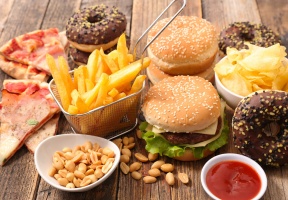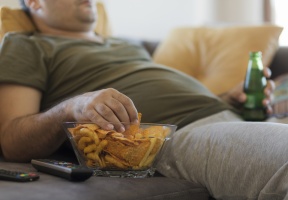

People eating ultra-processed foods ate more calories and gained more weight than when they ate a minimally processed diet, according to results from a National Institutes of Health study. The difference occurred even though meals provided to the volunteers in both the ultra-processed and minimally processed diets had the same number of calories and macronutrients. The results were published in Cell Metabolism. This small-scale study of 20 adult volunteers, conducted by researchers at the NIH’s National Institute of Diabetes and Digestive and Kidney Diseases (NIDDK), is the first randomized controlled trial examining the effects of ultra-processed foods as defined by the NOVA classification system. This system considers foods “ultra-processed” if they have ingredients predominantly found in industrial food manufacturing, such as hydrogenated oils, high-fructose corn syrup, flavoring agents, and emulsifiers. For the study, researchers admitted 20 healthy adult volunteers, ten male and ten female, to the NIH Clinical Center for one continuous month and, in random order for two weeks on each diet, provided them with meals made up of ultra-processed foods or meals of minimally processed foods. For example, an ultra-processed breakfast might consist of a bagel with cream cheese and turkey bacon, while the unprocessed breakfast was oatmeal with bananas, walnuts, and skim milk. The ultra-processed and unprocessed meals had the same amounts of calories, sugars, fiber, fat, and carbohydrates, and participants could eat as much or as little as they wanted.












